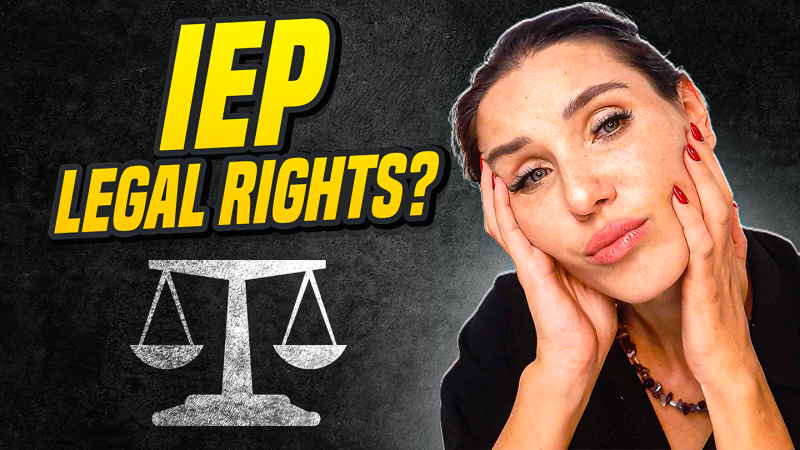
If Your Child is Struggling in school start a free trial of the Learning Success System
Explore the legal rights of students with Individualized Education Programs (IEPs) in this insightful episode of the I Questions Series.
Key Legal Rights of IEP Students
1. Free and Appropriate Public Education (FAPE): Every student with an IEP is entitled to receive an education tailored to their unique needs at no cost to their parents. Schools must provide services addressing both academic and functional goals, ensuring students are set on a path towards meaningful educational outcomes.
2. Individualized Education Program (IEP) Development and Review: The IEP is a personalized educational plan, collaboratively created by parents, educators, and specialists, tailored to a student’s individual needs. It undergoes regular reviews to ensure its continued relevance and effectiveness.
Key Legal Rights of IEP Students Contd.
3. Parental Involvement and Consent:
Parents play a crucial role in the IEP process, actively participating in the development and review of their child’s IEP. Parental consent is required for initial evaluations, placements, and certain changes to services.\
4. Right to Assessment and Evaluation:
Schools are obligated to conduct thorough assessments to accurately identify students requiring special education services, ensuring interventions are precisely tailored to each student’s needs.
Key Legal Rights of IEP Students Contd.
5. Least Restrictive Environment (LRE):
The LRE principle advocates for the education of students with disabilities alongside their non-disabled peers, whenever possible, promoting inclusivity and preventing isolation.
6. Non-Discrimination and Equal Access:
Students with disabilities are protected against discrimination, with schools mandated to provide accessible facilities, programs, and extracurricular activities.
Key Takeaways:
Key Legal Rights of IEP Students Contd.
7. Procedural Safeguards and Due Process:
Provisions are in place to protect the rights of IEP students and their parents, including mechanisms to resolve disagreements and the right to request a due process hearing.
8. Confidentiality of Student Records:
Protected by the Family Educational Rights and Privacy Act (FERPA), this right ensures the privacy of students’ educational records, safeguarding sensitive information.
Are you looking to foster a growth-oriented mindset in your child and build their resilience and grit?
Look no further than the Learning Success System, a do-at-home educational therapy program that addresses cognitive micro-skills and helps with focus, reading, math, confidence, and more. And now, for a limited time only, a free trial is available for those interested in unlocking their child's full potential. Don't miss this opportunity to invest in your child's future!
Learn everything you need to know about IEP's in this new documentary.
Get the full documentary here
Or watch on Amazon Prime Video









